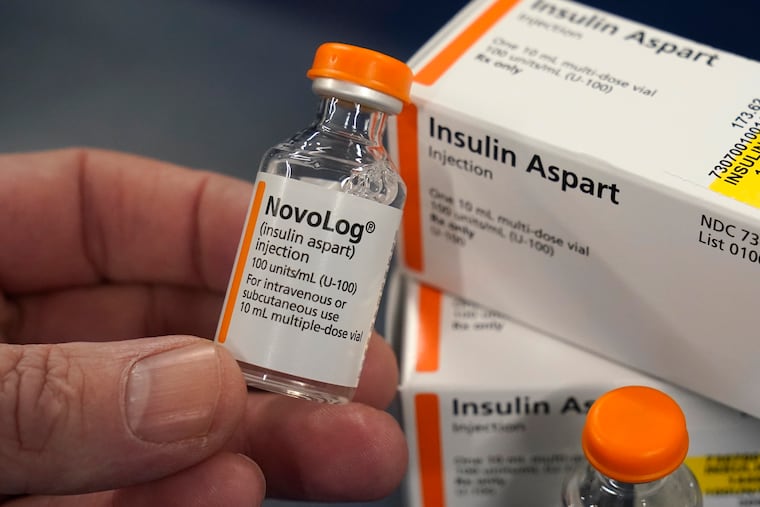Philadelphia DA Larry Krasner sues insulin makers, pharmacy benefit managers, over high prices
Eli Lily and CVS are among the companies named in the lawsuit.

Philadelphia District Attorney Larry Krasner is suing some of the largest pharmaceutical coompanies and pharmacy benefit managers in the country over the cost of insulin.
He contends that the leading insulin manufacturers — Eli Lily, Novo Nordisk, and Sanofi-Aventis — colluded with top pharmacy benefit managers, including CVS Caremark, Express Scripts, and OptumRx to keep insulin prices artificially high and price gouge consumers. In a lawsuit filed without fanfare in October, Krasner said he wants the companies to end unfair pricing and pay unspecified monetary damages.
The drug makers and pharmacy benefit managers said the lawsuit is baseless and should be dismissed.
Indiana and the city of Baltimore filed similar lawsuits over insulin prices last week, amid ongoing federal efforts to try to rein in high drug prices. Krasner planned to hold a news conference Monday to call attention his office’s efforts to make affordable a medication that is essential to the health of thousands of city residents.
Insulin has been a particular focus among drug price critics because it is widely used and expensive. Some of the most popular insulins can cost up to $700 for a month’s supply.
The medication is used by people with diabetes, a condition in which the body doesn’t produce its own insulin or doesn’t regulate it properly. Insulin regulates the amount of sugar in the blood.
People with type 1 diabetes don’t produce any insulin and are at risk of diabetic ketoacidosis, a life-threatening emergency in which the body begins to shut down, if they don’t take their medication.
Yet about 17% of people reported rationing or skipping doses of insulin because of cost in 2019, according to a 2022 report by the Department of Health and Human Services.
Feds working to bring down insulin prices
Medicare last year established an insulin cap of $35 a month, which the federal government estimated could save seniors and people with disabilities covered by the program hundreds of dollars a year.
Under private insurance, insulin prices can vary widely. Prices vary depending on the plan’s copays and cost sharing, the type of insulin, and which medications are favored in the drug formulary.
A drug formulary is a list of medications covered by a health plan, typically organized in tiers. Drugs on the lowest tier are least expensive, while drugs on upper tiers cost more.
Pharmacy benefit managers serve as middlemen between insurance companies and drug companies to develop drug formularies.
In their response to Krasner’s lawsuit, insulin manufacturers said they already help consumers to keep the costs of insulin limited through rebates and financial help programs.
“Lilly has been working for years to reduce insulin out-of-pocket costs for people with diabetes, against the headwinds of a healthcare system that incentivizes others — like the parties filing these lawsuits — to choose higher list-price medicines over lower-priced options,” a spokesperson for Eli Lilly said in a statement.
For their part, pharmacy benefit managers denied the lawsuit’s claim that they colluded with drug makers on insulin prices.
“Pharmaceutical companies alone are responsible for the prices they set in the marketplace for the products they manufacture,” a spokesperson for CVS Health said in a statement. “Nothing in our agreements prevents drug manufacturers from lowering the prices of their insulin products and we would welcome such an action.”